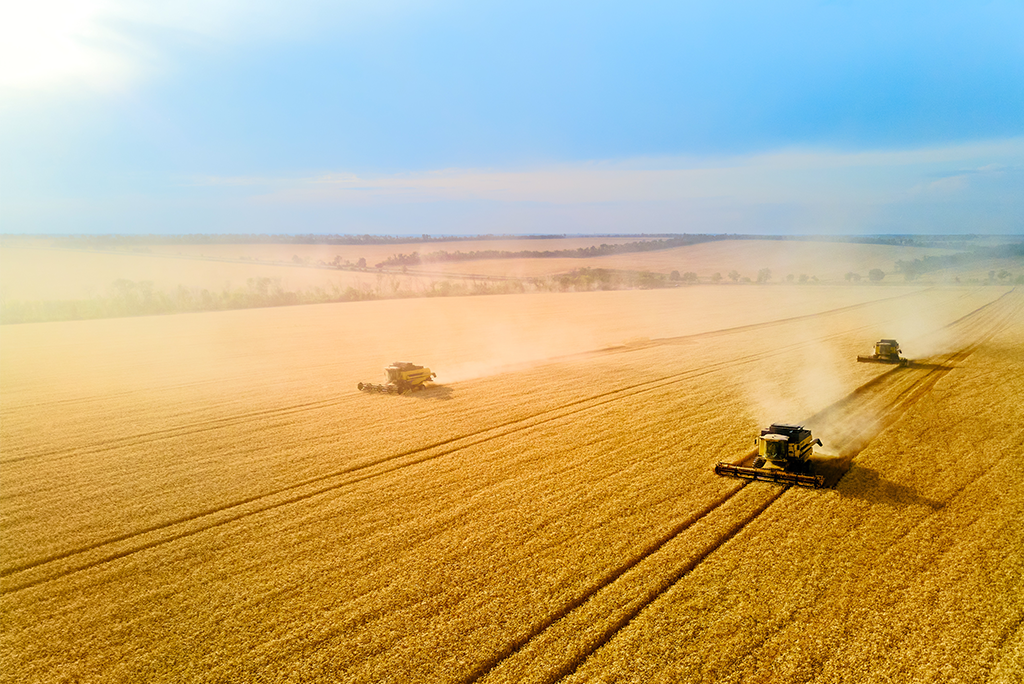
Agricultural robots, such as autonomous sprayers, harvesters, and drones, can make modern farming more efficient and productive. However, the technology may also be vulnerable to cyber attacks. According to a report released this year from the University of Cambridge, cyber security risks posed to robotic farming machines, which rely on artificial intelligence, need to be better understood.
“The idea of intelligent machines running farms is not science fiction,” Dr. Asaf Tzachor of the University of Cambridge’s Center for the Study of Existential Risk (CSER), and first author of the paper, stated. “Large companies are already pioneering the next generation of autonomous ag-bots and decision support systems that will replace humans in the field.”
However, he brings a key point, noting that “so far no-one seems to have asked the question ‘are there any risks associated with a rapid deployment of agricultural AI?’”
What Are the Risks?
Robotic farming systems may contain flaws in their software that make them easy to infiltrate, potentially resulting in large-scale food crises. In the absence of adequate security features, hackers could potentially shut down large-scale commercial farms by manipulating AI datasets in robotic equipment. A worst-case scenario might involve foreign government-backed hackers targeting robotic agricultural machinery — such as fleets of automated tractors that are controlled by GPS positioning systems — to interrupt global food supply chains. In such a scenario, entire cities or even regions could be cut off from food.
“There is a real risk that people anywhere in the world could try and take control of these machines to get them to do whatever those people want, or just prevent them from operating,” Chris Chavasse, co-founder of Muddy Machines, a company that is testing a robotic asparagus-harvesting machine, told the BBC.
Though such an event has never occurred, waves of ransomware attacks over the last several years— which have cost food processors millions of dollars— have revealed a need to take the issue seriously. For example, meat processing company JBS was forced to pay $11 million USD during a ransomware attack.
Sophisticated attacks against robotic farming equipment is something the agriculture industry is already trying to stop.
“That’s what we’re trying to prevent – stalling something during the most important times, particularly seeding or harvesting,” an anonymous ethical hacker, “Sick Codes”, who helps companies identify weaknesses in their security systems, told the BBC. “If you can’t move your tractor during that time, or if you can’t pick or take the crop out of the ground, you can imagine what happens. It just stops, the whole thing.”
How To Make AI-Enabled Commercial Farming More Secure
The Cambridge researchers suggest various measures to improve the security of this technology, including:
- using frameworks for responsible and human-centered innovation
- including rural anthropologists and applied ecologists in planning technology design
- creating data cooperatives for enhanced data transparency and ownership rights
- having initial placement of agricultural AI in digital sandboxes
With artificial intelligence becoming more advanced and hackers more sophisticated, cyber security is more necessary than ever before. Is your organization ready to implement the latest cyber security requirements?
Are You Prepared to Handle Cyber Attacks?
Cyber attacks are certainly not limited to agricultural robots. As more industries incorporate automated systems into their businesses, it’s crucial to understand available cyber security measures to protect its data and devices.
Cyber Security Tools for Today’s Environment, an online 11-course program from IEEE, helps businesses improve their security techniques. Contact an IEEE Account Specialist today to learn more about gaining access to the course program for your organization.
Interested in learning more about this topic for yourself? Visit the IEEE Learning Network (ILN) today!
Resources
Marshall, Claire; Prior, Malcolm. Cyber security: Global food supply chain at risk from malicious hackers. BBC.
vTzachor, Asaf; Devare, Medha; King, Brian; Avin, Shahar , and ÓhÉigeartaigh, Seán. 23 February 2022. Responsible artificial intelligence in agriculture requires systemic understanding of risks and externalities. Nature.
23 February 2022. Risks of using AI to grow our food are substantial and must not be ignored, warn researchers. University of Cambridge.


[…] Vehicles John Deere, a leading farming equipment company, is working on self-driving tractors. And smart tractors don’t have to be unmanned or fully autonomous to benefit farmers. One particular feature […]